Animal Sciences
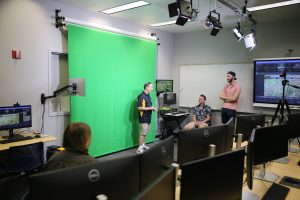
Aug. 29, 2022
Enhancing Education
CAFNR secures nearly $700,000 to enhance teaching and learning for students.
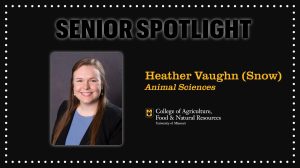
May 9, 2022
Senior Spotlight: Heather Vaughn (Snow)
Vaughn will graduate with a degree in animal sciences.
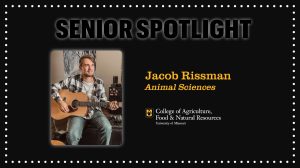
Dec. 13, 2021
Senior Spotlight: Jacob Rissman
Rissman will graduate with a degree in animal sciences.
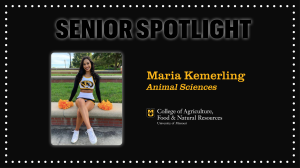
May 10, 2021
Senior Spotlight: Maria Kemerling
Maria Kemerling began cheering in 2010 – and knew she was going to love being on the sidelines as a Mizzou cheerleader when she first stepped on the University of Missouri campus as a freshman in 2017. Now, as Kemerling heads toward graduation, she has numerous game-day experiences at Faurot Field and Mizzou Arena under her belt, as well as three trips to the National Cheerleaders Association’s (NCA) national competition. She has learned how to balance a demanding athletic schedule with her schoolwork as a student in animal sciences. “Mizzou Cheer has been a huge part of my college experience…
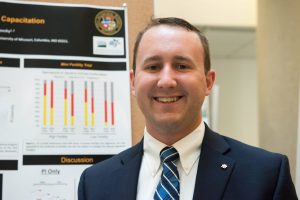
May 7, 2020
Karl Kerns Honored with Distinguished Dissertation Award
Karl Kerns, a postdoctoral fellow in animal sciences, has received the MU Distinguished Dissertation Award from the Graduate School as part of the Sixth Annual Graduate and Postdoctoral Award Ceremony. Kerns’ dissertation, “Zinc Ion Fluxes on the Pathway to Mammalian Sperm Fertilization Competency,” was supervised by Peter Sutovsky, professor of animal sciences. The research used a combination of new techniques to explain sperm zinc ion fluxes and develop a new sperm fertilization competency test. The test has been submitted for international patenting by the University of Missouri. The findings from Kerns’ dissertation have been published in the highly regarded Nature…
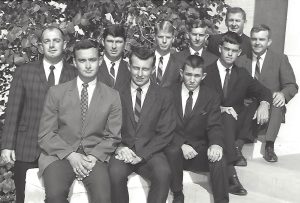
May 6, 2020
Reflections: G.B. Thompson
When I was in grade school in Pettis County (Quisenberry Grade School), there was a World Book Encyclopedia with a chapter on animals in it. I practically wore that chapter in the book out I read it so often. I had a passion for animals incredibly early. I just loved to be around livestock. I grew up on a dairy farm, where we also raised hogs and sheep. I got involved in 4-H at a young age and was part of the 4-H livestock judging team right away. J.U. Morris was our county Extension agent and coached the livestock judging…
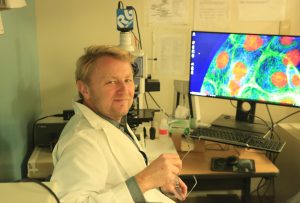
Nov. 27, 2019
‘The Pinnacle of My Career’
Growing up in Slovakia, a young Peter Sutovsky would often hold his own science-based lectures in front of his elementary classmates. Those lectures would generally focus on insects, as Sutovsky had a big interest in entomology. “I would bring in my insect collection and explain how the organs of a male beetle were different than the organs of a female beetle,” Sutovsky. “It was a bit precocious – and an early introduction to the birds and the bees. There was definitely a natural curiosity and interest in science from a young age.” Little did Sutovsky know then that his early…
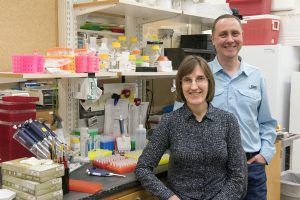
April 13, 2018
Breeding a Better Bee
The honey bee is as busy as ever. From almonds to zucchini, honey bees pollinate more than 90 agricultural crops in the United States — worth more than $15 billion annually. In 2017, the apiculture industry provided pollination services valued at nearly $320 million, according to the USDA’s National Agricultural Statistics Service. In addition, the bees also produced almost 150 million pounds of honey. Armed with a four-year, nearly $1 million grant from the USDA National Institute of Food and Agriculture, the CAFNR researchers will comb the honey bee genome in an attempt to find genetic markers predictive of resiliency…
- « Previous
- 1
- 2
- 3